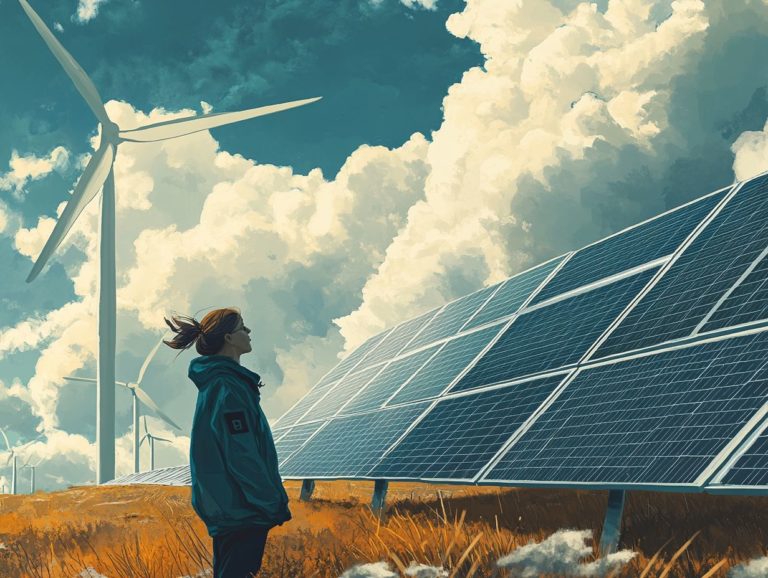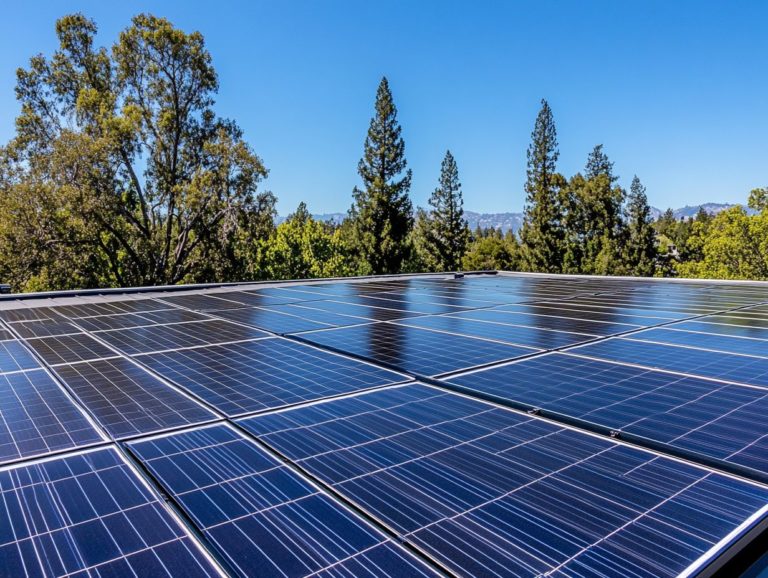How to Maintain Energy-Efficient Appliances?
Making the switch to energy-efficient appliances is not just a boon for the planet; it s also a savvy financial decision.
As you become more conscious of your environmental footprint, grasping the nuances of selecting and maintaining these appliances becomes essential.
This article delves into the myriad advantages of energy-efficient models, guiding you on how to identify them through recognized systems like Energy Star. You ll also find practical tips for their optimal usage.
It highlights common habits that waste energy. It also signals when it’s time for an upgrade.
Start making smart choices today for a sustainable and exciting future!
Contents
- Key Takeaways:
- The Importance of Energy-Efficient Appliances
- Identifying Energy-Efficient Appliances
- Tips for Maintaining Energy-Efficient Appliances
- Common Energy-Wasting Habits to Avoid
- Upgrading to Energy-Efficient Appliances
- Frequently Asked Questions
- 1. Cu les son algunos electrodom sticos eficientes en energ a y por qu es importante mantenerlos?
- 2. C mo puedo mantener mi refrigerador para hacerlo m s eficiente en energ a?
- 3. Hay formas simples de hacer que mi lavavajillas sea m s eficiente en energ a?
- 4. Con qu frecuencia debo limpiar el filtro de pelusa de mi secadora para mantener su eficiencia energ tica?
- 5. Puedo mantener la eficiencia energ tica de mi aire acondicionado sin sacrificar la comodidad?
- 6. Vale la pena invertir en electrodom sticos eficientes en energ a?
Key Takeaways:
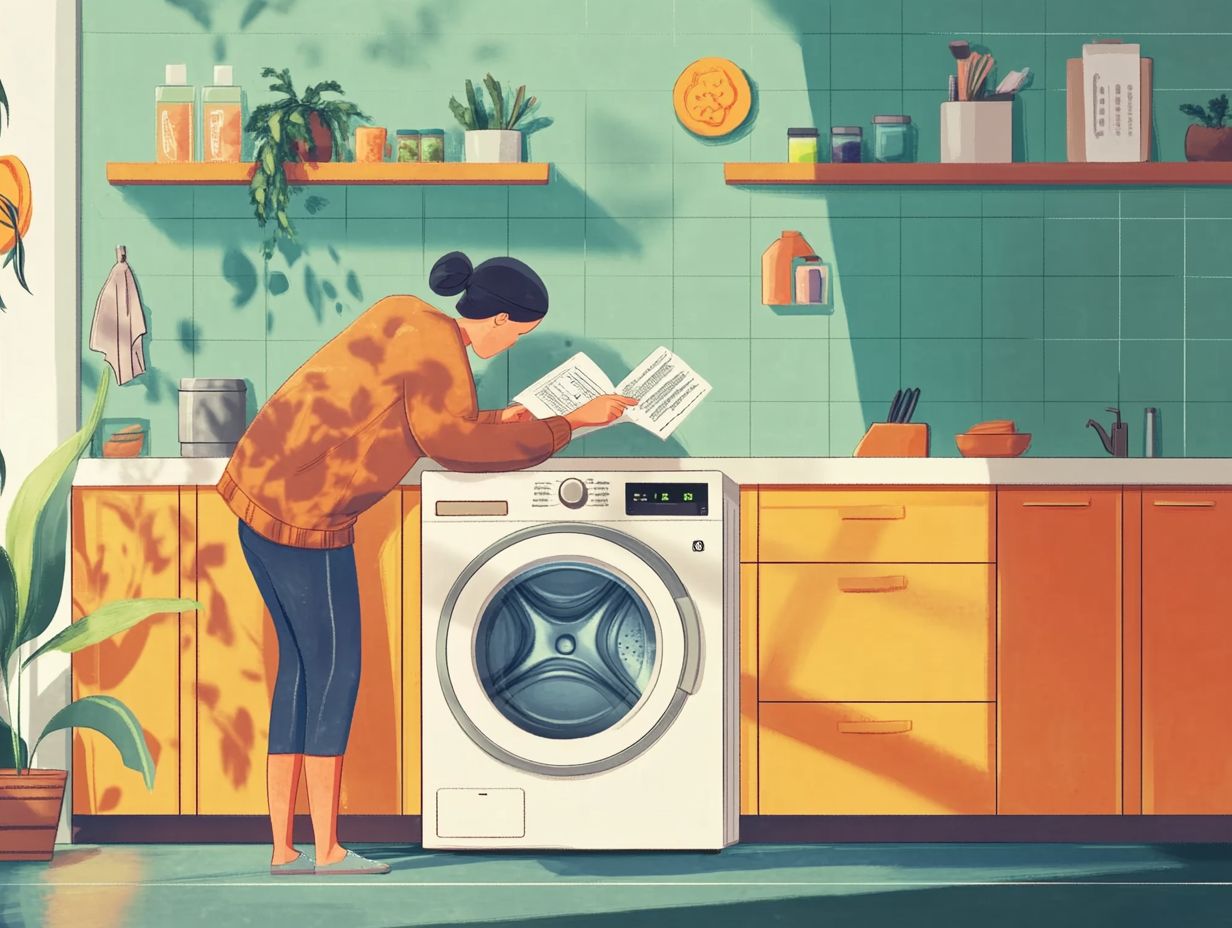
Switching to energy-efficient appliances saves money and protects the planet. Use the Energy Star label to find the best options for your home.
The Importance of Energy-Efficient Appliances
Energy-efficient appliances are essential in your goal of being environmentally friendly, as they help you reduce energy consumption and lower carbon emissions in your home. To learn more about their positive effects, check out the environmental impact of energy-efficient appliances.
Choose Energy Star labeled products to identify those that meet strict energy performance standards set by the U.S. Department of Energy. This enables you to make informed decisions that not only benefit the environment but also positively impact your utility bills.
Benefits for the Environment and Your Wallet
Investing in energy-efficient appliances aids in energy conservation and significantly reduces your utility bills.
These appliances are designed to use less electricity and water, leading to lower monthly expenses that can accumulate impressively over time. Many utility companies offer enticing rebates for homeowners who opt for energy-saving choices, making that initial investment even more manageable.
On the environmental side, these appliances play a critical role in reducing energy waste and lowering greenhouse gas emissions gases that trap heat in the atmosphere and contribute to climate change contributing to a smaller carbon footprint.
By choosing eco-friendly technology, you can actively promote a sustainable future while enjoying cost-effective living.
Identifying Energy-Efficient Appliances
Identifying energy-efficient appliances becomes effortless when you look for labels like Energy Star. These labels signify not only superior energy performance ratings but also adherence to the stringent industry standards established by the U.S. Department of Energy. Additionally, learning how to save energy with smart home appliances can further enhance your energy conservation efforts.
Energy Star Rating System
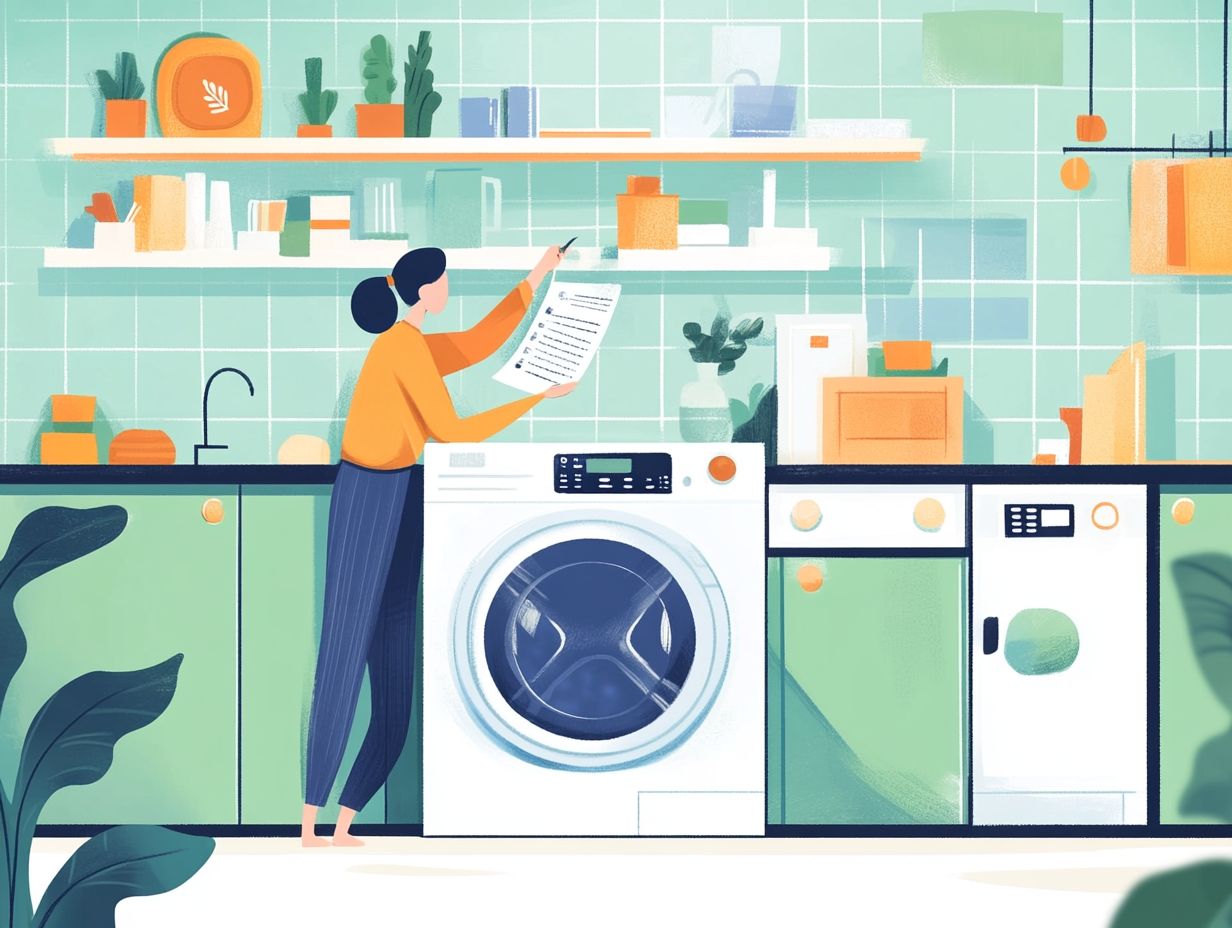
The Energy Star rating system gives you the power to make informed choices by providing clear energy performance ratings for a variety of appliances. This ensures you select products that adhere to established efficiency standards.
This program is a collaborative effort between the U.S. Environmental Protection Agency (EPA) and the U.S. Department of Energy, designed to promote energy efficiency through rigorous criteria. Manufacturers must meet specific energy performance benchmarks to earn the Energy Star label, which fosters innovation in design and helps reduce greenhouse gas emissions.
For you, this label serves as a reliable indicator of energy savings, often leading to lower utility bills. Here are some common appliances that efficiently save energy:
- Refrigerators
- Washing machines
- Ceiling fans
all expertly designed to use less energy while delivering optimal performance.
Tips for Maintaining Energy-Efficient Appliances
To fully harness the advantages of energy-efficient appliances, you must prioritize proper installation and commit to practical tips for energy-efficient appliance use through regular maintenance.
This dedication directly impacts energy consumption and enhances overall efficiency, ensuring you reap the maximum rewards of your investment.
Proper Usage and Maintenance Techniques
Implementing proper usage and maintenance techniques, such as regularly cleaning filters and using programmable thermostats, can significantly enhance the efficiency of your energy-efficient appliances.
Taking time to perform routine checks on your appliances prolongs their lifespan and minimizes energy waste. For instance, regularly inspecting and cleaning your refrigerator coils helps maintain optimal cooling performance. Additionally, consider following tips for choosing energy-efficient appliances to enhance your home’s efficiency. Ensuring that your washing machines and dishwashers are leveled correctly prevents unnecessary strain on their motors.
Regarding heating and cooling systems, adjusting operational settings to match the seasons can be a game-changer. Using programmable thermostats effectively allows you to set specific temperatures for different times of the day, ensuring energy isn t wasted when you re not home.
These simple yet impactful techniques will help you create a more efficient household while saving on costs.
Common Energy-Wasting Habits to Avoid
Homeowners frequently fall into common energy-wasting habits that can inflate utility bills and undermine the advantages of energy-efficient appliances.
Recognizing these habits is crucial for maximizing efficiency and maintaining cost-effectiveness in your home.
Identifying and Changing Energy-Wasting Habits
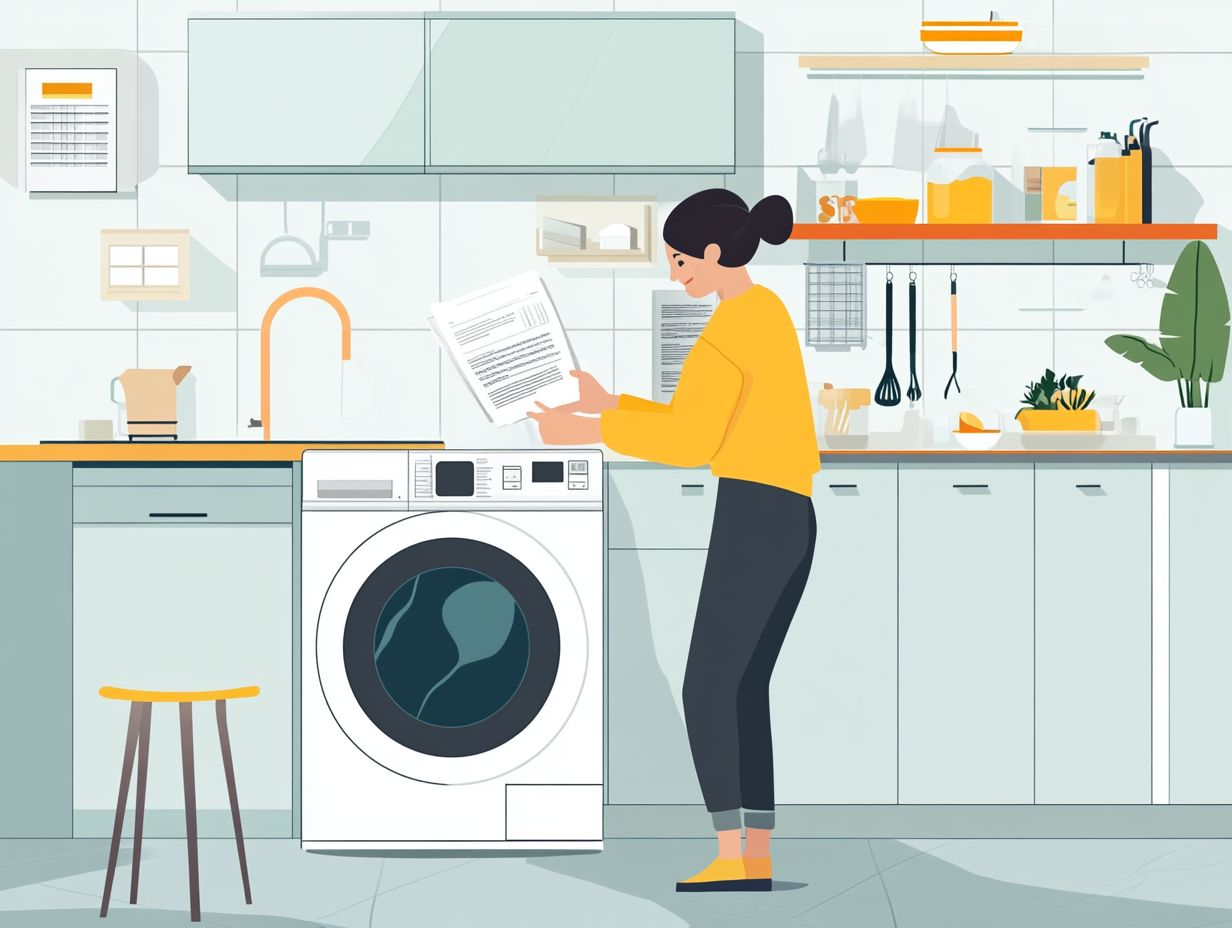
Identifying and changing energy-wasting habits is essential for homeowners who want to maximize the efficiency of their energy-efficient appliances and reduce overall energy consumption. By becoming aware of simple yet impactful behaviors, you can make significant improvements in your household energy usage.
For example, neglecting to unplug chargers and devices when they’re not in use can lead to phantom energy drain. Overlooking the energy-saving modes on your appliances can further compound waste.
To tackle these issues, consider adopting strategies such as:
- Using smart power strips that automatically cut power to devices when they re turned off.
- Organizing your appliance usage, like running dishwashers and washing machines during off-peak hours, to streamline consumption and enhance your overall energy strategy.
Upgrading to Energy-Efficient Appliances
Upgrading to energy-efficient appliances is an essential move for homeowners committed to sustainability.
Not only does this choice help you cut down on utility costs, but it also significantly contributes to your eco-friendly goals.
When and How to Upgrade Appliances
Knowing when and how to upgrade your appliances can enhance your home s energy efficiency while embracing the advantages of modern technology.
It s essential to recognize the signs that indicate it s time for an upgrade. Look for outdated appliances that struggle with daily tasks, rising utility bills that hint at increased energy consumption, and frequent visits from the repair technician. These indicators can guide your decision.
When choosing new energy-efficient models, consider practical steps. Research options that carry the ENERGY STAR label, which shows the product uses less energy. For more information on how to upgrade to energy-efficient appliances, understanding the maintenance guidelines for your new appliances will help them run better and deliver long-term savings.
Frequently Asked Questions
1. Cu les son algunos electrodom sticos eficientes en energ a y por qu es importante mantenerlos?
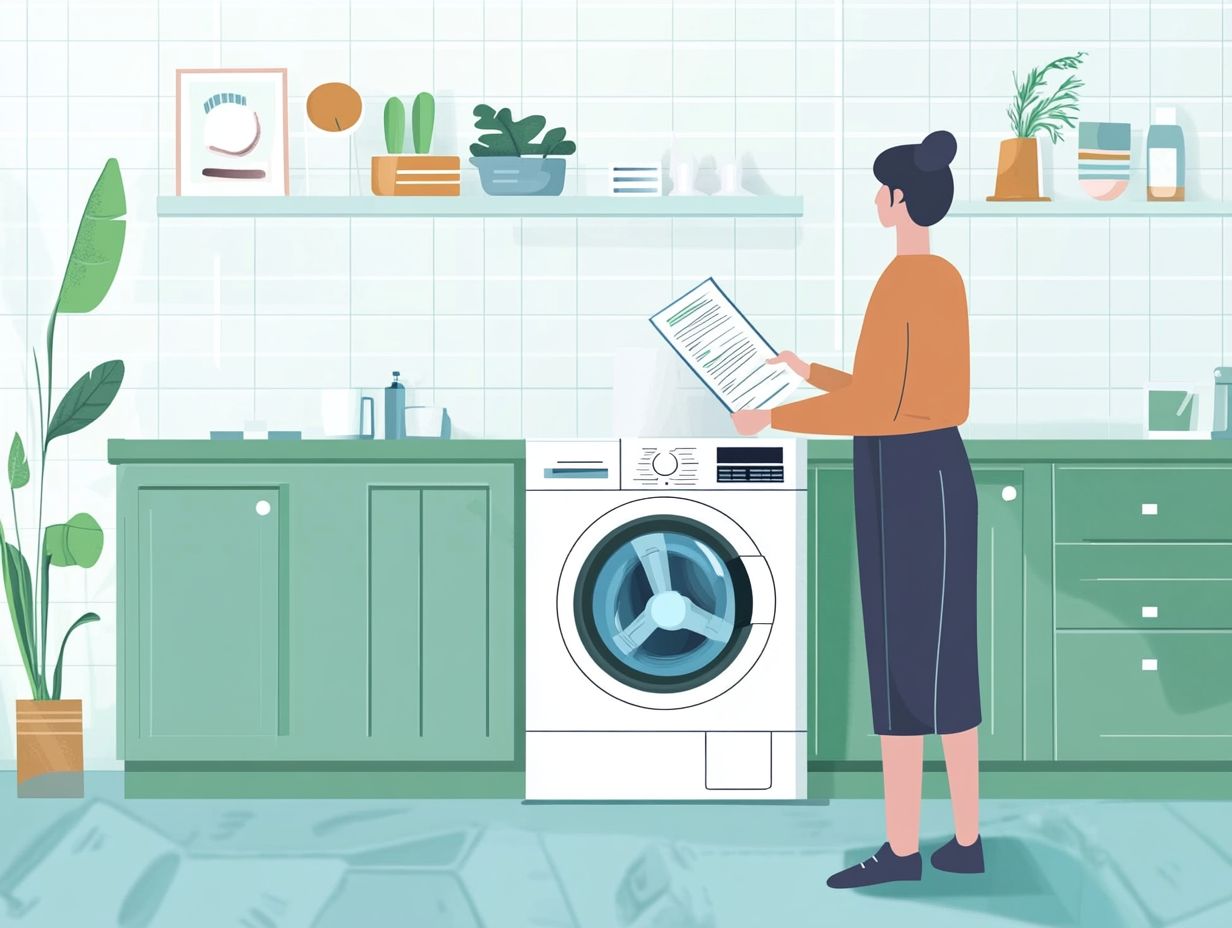
Los electrodom sticos eficientes en energ a comunes incluyen refrigeradores, lavavajillas, lavadoras y aires acondicionados. Es importante mantener estos electrodom sticos porque utilizan menos energ a, lo que puede ahorrarte dinero en las facturas de servicios y ayudar a reducir tu huella de carbono.
2. C mo puedo mantener mi refrigerador para hacerlo m s eficiente en energ a?
Para mantener la eficiencia energ tica de tu refrigerador, aseg rate de limpiar regularmente las bobinas del condensador. Mant n el refrigerador abastecido y evita colocarlo cerca de fuentes de calor o luz solar directa. Tambi n debes revisar y reemplazar regularmente cualquier sello de puerta desgastado o da ado.
3. Hay formas simples de hacer que mi lavavajillas sea m s eficiente en energ a?
S , hay algunas cosas que puedes hacer para mejorar la eficiencia energ tica de tu lavavajillas. salo solo cuando est lleno y selecciona la configuraci n de ahorro de energ a si la tienes.
Raspa el exceso de comida antes de cargarlo. Tambi n, evita la opci n de secado por calor.
4. Con qu frecuencia debo limpiar el filtro de pelusa de mi secadora para mantener su eficiencia energ tica?
Debes limpiar el filtro de pelusa de tu secadora despu s de cada carga. Un filtro limpio permite un buen flujo de aire y reduce el tiempo de secado.
5. Puedo mantener la eficiencia energ tica de mi aire acondicionado sin sacrificar la comodidad?
S , puedes mantener la eficiencia energ tica de tu aire acondicionado sin perder comodidad. Limpia o reemplaza el filtro de aire regularmente y mant n el rea alrededor libre de escombros.
Ajusta el control de temperatura a una configuraci n m s alta cuando no est s en casa o durante la noche.
6. Vale la pena invertir en electrodom sticos eficientes en energ a?
S ! Invertir en electrodom sticos eficientes es una excelente decisi n. Aunque el costo inicial puede ser mayor, te ahorrar dinero en tus facturas de servicios a largo plazo.
Usar menos energ a tambi n reduce tu impacto ambiental y puede incrementar el valor de tu hogar.

